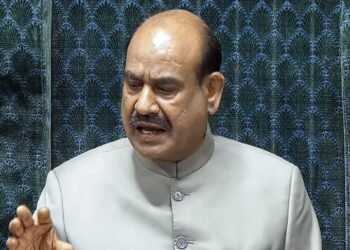Atul Subhash, an engineer from Bengaluru, tragically took his own life on Monday, leaving behind a 40-page suicide note and a 90-minute video detailing the severe harassment and torture he allegedly suffered at the hands of his wife, Nikita Singhania, and her family. His chilling account has sparked a police investigation and raised serious questions about marital abuse.
By PC Bureau
The arrest of Nikita Singhania appears imminent. On Friday, Bengaluru City Police issued a summons to Nikita , asking her to appear at Marathahalli police station within three days for questioning. A police team arrived at her residence in Jaunpur, Uttar Pradesh, to paste the notice. However, Nikita remains absconding.
Nikita figures as one of the prime accused ina suicide note left behind by her husband Atul Subhash. An engineer, Subhash left behind a damning 40-page note and a 90-minute video detailing the alleged torture and harassment inflicted upon him by his wife and in-laws. In these disturbing accounts, Atul described the unbearable pressure he faced, ultimately leading him to take his own life
Meanwhile, Atul’s mother-in-law, Nisha Singhania, and brother-in-law, Anurag Singhania, were arrested late Thursday night in Jaunpur. The duo reportedly attempted to flee after learning about the Karnataka Police’s arrival. They are currently in custody and will be transported to Bengaluru after obtaining court permission.
Harrowing Allegations
Atul’s suicide note detailed the alleged harassment, including a demand for ₹3 crore as a divorce settlement. He accused his wife’s family of mental and financial abuse, which he claimed drove him to take his life.
The note also expressed his distrust in the legal system, urging authorities to ensure justice is served. “If the court decides my wife and her family are not guilty, pour my ashes into a gutter outside the court. Don’t do my ‘asthi visarjan’ until my harassers are punished,” he wrote.
Some of the specific cases of alleged torture mentioned by Atul include:
- Demands for Large Divorce Settlement: Atul claimed that his wife and her family had demanded a massive sum of ₹3 crore as a settlement for divorce. He cited this financial burden as one of the key factors contributing to the abuse he suffered.
- Physical and Emotional Abuse: In his suicide note and video, Atul accused his wife and her family of subjecting him to continuous emotional and physical abuse, which included verbal insults and threats. He stated that they repeatedly humiliated him and made his life unbearable.
- False Cases and Legal Harassment: Atul also alleged that his wife and her family had falsely accused him of various crimes, which led to prolonged legal battles. He expressed in his note that the constant pressure of dealing with these fabricated cases was part of the emotional torture that drove him to suicide.
- Isolation and Financial Control: Atul described how he was cut off from his own family and friends, being isolated by his wife and her relatives. He also mentioned how they controlled his finances, making it difficult for him to lead a normal life.
These specific allegations, as detailed in his suicide note and video, are now central to the ongoing investigation by the Bengaluru Police, who are focusing on the role of Atul’s wife and her family in his tragic death.
A Cry for Reform
Addressing his two-year-old child, Atul lamented the “terrible state of the legal system” and the misuse of laws. He called for his suicide note and videos to be treated as evidence and demanded strict action against his alleged harassers.
A Family’s Grief
Atul’s family collected his ashes from Bengaluru, stating they would be immersed in Patna following traditional rituals. His parents, devastated by the loss, reiterated his plea for justice and custody of his child.
National Outcry
Atul’s tragic death has reignited debates about gendered biases in India’s legal framework and the need for reforms to protect victims of harassment, irrespective of gender. His case stands as a grim reminder of the devastating consequences of unchecked familial disputes and societal pressures.
As the investigation unfolds, Atul’s plea for justice and systemic reform echoes across the country, challenging society to address these critical issues.














